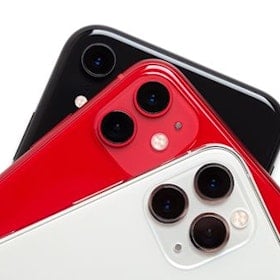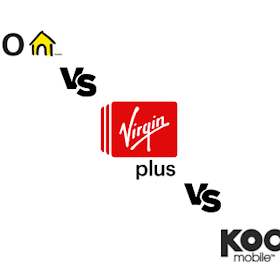Design
4/5
Since the inception of the Lumia brand, Nokia phones have been instantly recognisable next to the competition. Bright, often fluoro colours play a part in this, but there are other elements which are common across the range.
For example, Nokia Lumia phones tend to be noticeably heavier than other smartphones. This is true of the Lumia 930, which weighs 167-grams, or about 50% heavier than an iPhone 5s. Not that a heavy phone makes for a bad phone, in fact many will appreciate the sturdy heft you feel holding the 930.

Some of the extra weight comes from the fact that Nokia has designed this phone from a single piece of aluminium, but unlike the HTC One, Nokia then hides the majority of this metal case with a coloured plastic cover over the back, and a full-glass front. Macbook-lovers may bemoan the plastic covering the metal on the back of the 930, but for our money, this is a great decision. The HTC One is a notoriously slippery device and the plastic here offers a bit of grip that all smartphones need.

There are three mechanical buttons along the right-side, with one of them dedicated to launching the camera and taking photos — always a welcome inclusion. A 3.5mm headphone jack is centred on the top of the handset, which should be a comfortable position to plug in your headphones, especially while exercising.

Display
5/5
If there is one reason to buy a Lumia 930, despite anything we might say, it’s the stunning AMOLED touchscreen display. In the smartphone world, display quality is one of the key distinguishing points between the dozens of phones available. Nokia’s screen is Full-HD in resolution, and it looks superb. Colours really pop on this screen, but still look natural and are not made cartoonish by saturation levels cranked to eleven.

During the launch of the Lumia 930, Nokia made quite a fuss about the brightness of its AMOLED screen, claiming that it would be more readable under bright sunlight than many of its big-name competitors. We’re happy to report back that these claims seem to check out, and that our review unit was perfectly readable, even with bright, morning light pointed straight towards it.

Windows Phone 8.1
3/5
The greatest challenge Nokia faces in trying to sell Lumia 930 handsets is that it runs on Windows Phone in a world dominated by Androids and iPhones. With the recent release of the new Windows Phone 8.1 firmware update, Microsoft’s mobile platform is definitely in better shape.

- Action Centre and quick settings: if you swipe down from the top of the screen you’ll reveal the new notifications panel, similar to features found in iOS and Android. From the panel you can read all new incoming messages, app events and calendar reminders, plus you can quickly tweak a handful of key settings, like Wi-Fi and Flight Mode.
- Multiple volume levels: finally you can set a different volume for ringtones and media content (including game SFX).
- Word Flow keyboard: type messages using a swiping gesture on the screen, rather than tapping out individual letters
As phone reviewers, we spend a majority of our time with Google Android, being that it is installed on nine-out-of-ten phones we bring into the lab. Naturally, this has us looking for familiar elements, and in many ways Windows Phone still doesn’t stack up — depending on how you use your phone.
The novelty of horizontally scrolling app design, set out by Microsoft, is starting to show its limits, especially if an app points to a services with lots of branched sub-categories. The best example of this is Facebook. When Windows Phone first launched in 2010, the Facebook team designed an app using a horizontal layout, but it was a cumbersome way of viewing so much information. Today, the Facebook app pre-installed on the Lumia 930 is an Android clone with much faster access to the different categories of your Facebook account (photos, friends, events, etc).

Facebook might have dodged this particular bullet, but stacks of the apps available on the Store aren’t so well off. Apps for news feeds require a lot of swiping and tapping of the ‘Back’ button to move between topics and feeds. This design language was a good way for Microsoft to not be another ‘me-too’ mobile platform, but it is probably time to offer app developers a few more options for how Windows Phone apps can look and work.
Speaking of the app store, this is one area where we’ve had the most issues, and not just pertaining to the range of apps available. The store app has an annoying habit of creating a backlog of apps to update, which act as a bottleneck for any new apps you might want to download. We’ve found that apps can display a ‘Pending’ notice indefinitely and will need to be cancelled and reinstalled. We tried switching from mobile data to Wi-Fi, but couldn’t find a reliable fix.
Camera
4/5
It has been a long time since a Nokia camera phone has disappointed the amateur photographers in the WhistleOut testing team. For speed, ease-of-use and great photos, Nokia cameras are among the most consistent that we have the pleasure to review.

The camera in the Lumia 930 is no exception. You can use either the built-in Windows Phone camera app, or Nokia’s own app, which comes with a suite of tweaks and adjustments common in dSLR camera, but less so in camera phones.
The photos we’ve taken with the 930 have been great across the board. If there was a photo we didn’t like it was almost always as a result of user error. Daytime pics are warm and colourful, it does a decent job with fast moving subjects (for a smartphone) and low-light shots are acceptable.

One new feature is called Living Images, and is a similar concept to the moving thumbnails in the gallery of the HTC One. When you take a photo, Living Images captures a second of video before the shot, so when you scroll to the image in the Photos app you see a burst of movement before the image settles into the final image.
Sample images:





Performance
4/5
Nokia packs a powerful quad-core Qualcomm processor into the Lumia 930 (Snapdragon 800, 2.2GHz) and 2GB RAM, and we have to say, it’s probably overkill. Windows Phone is an amazing system in terms of performance, and we’ve never had any issues with how it performs; even with low-end phone with lower-power processors. Our Lumia 930 didn’t even show signs of slowing down, and we’re confident you’d have the same experience.

In terms of connectivity, the Lumia 930 includes suped-up LTE Cat 4 speeds, allowing you to download data at speeds up to 150Mbps — if your telco uses the right 4G technology. It supports the latest Wi-Fi protocols, DLNA for media-sharing and Bluetooth V.4.0.
Battery life is excellent, with our review unit needing a recharge every second day. That said, our usage on a Windows Phone is different to the way we use other devices, and we don’t find we spend long sessions, browsing or gaming, with the screen on. Of course, your milage will vary, but we’ve been very happy with the battery life.

Overall
Nokia continues to make great looking phones with great cameras, but ultimately Windows Phone is still the thorn in its side. That’s not to ignore the fact that Windows Phone continues to improve, and there are a number of great changes in the latest update, but there are still a few clumsy elements, and no truly unique features that you have to buy a Windows Phone to take advantage of.
The Lumia 930 is an excellent example of what Nokia is capable of, but this isn’t a reason in itself to recommend this phone over its numerous competitors.
Related Articles
Find Better Phones and Plans
Hundreds of cell phone plans unpacked. All the facts. No surprises.







































